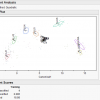-
Posts
292 -
Joined
-
Days Won
1
Reputation Activity
-
 RunnerGrad got a reaction from themmases in would you....?
RunnerGrad got a reaction from themmases in would you....?
Well said TakeruK. I consider my marriage a partnership. My husband and I work together to decide what options are best for us as a couple. My marriage is not a disposable relationship that I would throw away just because I have to compromise on some things.
Like you, there are some programs I simply didn't apply to for graduate school because they didn't make sense for us as a couple. That doesn't mean I've "thrown away my dreams" (whatever that means anyhow). It means I'm in a relationship that is of great importance to me. So my husband and I make decisions together, as a couple. We made a choice that works for both of us.
Being in a loving, lasting, committed relationship requires some sacrifice, by both individuals involved. As you said, that is not the case when one partner delivers an ultimatum to the other. There is a huge difference between the two scenarios.
-
 RunnerGrad got a reaction from Neeko in I honestly don't know what to do about grad school and my cats
RunnerGrad got a reaction from Neeko in I honestly don't know what to do about grad school and my cats
With an attitude like that, I hope you never own pets. They are NOT items that should just be given away on a whim. And no, there aren't lots of "nice people" out there who want to adopt pets - if there were, the shelters and rescues wouldn't be full of animals awaiting adoption.
Pets are like members of the family. You don't put your children up for adoption just because you are moving across country and it costs more to rent a place that has room for children than it does for a studio apartment. In the same way, you don't put your pets up for adoption just because you are moving. People that do really shouldn't own pets to begin with. Now, I realize there are some situations where it is truly not possible to continue to own pets (i.e. if you are no longer able to care for them due to severe illness or injury) but otherwise pets should not be treated as if they are disposable. They aren't. They are living, breathing creatures with feelings.
-
 RunnerGrad got a reaction from plumbunnie in MPH 2014 CANADA APPLICANTS
RunnerGrad got a reaction from plumbunnie in MPH 2014 CANADA APPLICANTS
Community Nutrition also had interviews, back at the end of February. Probably due to two factors: small cohort size (10 students per year) and the fact that Dietitians of Canada interviews for dietetic internships were around the same time (and internship offers went out in early March for the first rounds, hence UofT wanting to get its internship offers out around the same time as many students apply to internships as well as combined masters-internship programs like UofT's MPH in community nutrition).
-
 RunnerGrad got a reaction from pooner in MPH 2014 CANADA APPLICANTS
RunnerGrad got a reaction from pooner in MPH 2014 CANADA APPLICANTS
Just to provide an update: I received my official (via post) offer to the University of Toronto's MPH in Community Nutrition today, just about 1 month after receiving the email offer (which was on March 6th). Hopefully those of you waiting for the other specializations at UofT will hear back soon!
-
 RunnerGrad got a reaction from ArthChauc in would you....?
RunnerGrad got a reaction from ArthChauc in would you....?
It depends on exactly what you mean by "very high chance".
I put my plans to go back to school on hold for 5 years because my husband had an incredible opportunity that we decided together we couldn't turn down (and I had a great experience out of it as well - we were living in Europe for four years, which was well worth the delay in my schooling).
I knew that delaying my education by five years could be significant. As a non-traditional student already, I knew my chances were smaller than someone who went straight through along a traditional path. However, my husband and I discussed things together, and we made the choices that were best for us, as a couple.
When I made plans to return to university when I was in a position to do so, I ended up going in a completely different direction than I had been planning earlier. It actually ended up working out better for me, I think. Although the university I'll be attending for graduate studies in the Fall was never on my radar before our international experience, it had become my top choice for program and discipline over the past several years.
You never know what life is going to bring. My husband and I made all our decisions together as a couple, always respecting each other and deciding what was best for us.
-
 RunnerGrad got a reaction from ArthChauc in Relationships in Academia
RunnerGrad got a reaction from ArthChauc in Relationships in Academia
My husband and I have lived through several periods where our relationship was conducted at a distance. Why did we do it? Well, we had no choice. The military doesn't exactly let me come with him when he's away on training for months at a time, nor when he is deployed overseas for months at a time. They don't exactly let non-military spouses deploy on training, combat or peacekeeping missions with the military member.
It would be silly to end our relationship just because he has to go away on training or deploy. He was in the military when I met him, and I knew exactly what that meant. Our love is strong enough to deal with the separations when they occur. It helps that we are best friends, that we completely trust one another, and that we are good at communicating with each other.
Long distance relationships can work if both parties are committed to it. Both parties need to realize that there will probably be times when it is difficult being apart, and that having a strong relationship with open and honest communication will help them get through those difficult times.
-
 RunnerGrad got a reaction from AudCSL in I honestly don't know what to do about grad school and my cats
RunnerGrad got a reaction from AudCSL in I honestly don't know what to do about grad school and my cats
With an attitude like that, I hope you never own pets. They are NOT items that should just be given away on a whim. And no, there aren't lots of "nice people" out there who want to adopt pets - if there were, the shelters and rescues wouldn't be full of animals awaiting adoption.
Pets are like members of the family. You don't put your children up for adoption just because you are moving across country and it costs more to rent a place that has room for children than it does for a studio apartment. In the same way, you don't put your pets up for adoption just because you are moving. People that do really shouldn't own pets to begin with. Now, I realize there are some situations where it is truly not possible to continue to own pets (i.e. if you are no longer able to care for them due to severe illness or injury) but otherwise pets should not be treated as if they are disposable. They aren't. They are living, breathing creatures with feelings.
-
 RunnerGrad got a reaction from wandajune in I honestly don't know what to do about grad school and my cats
RunnerGrad got a reaction from wandajune in I honestly don't know what to do about grad school and my cats
With an attitude like that, I hope you never own pets. They are NOT items that should just be given away on a whim. And no, there aren't lots of "nice people" out there who want to adopt pets - if there were, the shelters and rescues wouldn't be full of animals awaiting adoption.
Pets are like members of the family. You don't put your children up for adoption just because you are moving across country and it costs more to rent a place that has room for children than it does for a studio apartment. In the same way, you don't put your pets up for adoption just because you are moving. People that do really shouldn't own pets to begin with. Now, I realize there are some situations where it is truly not possible to continue to own pets (i.e. if you are no longer able to care for them due to severe illness or injury) but otherwise pets should not be treated as if they are disposable. They aren't. They are living, breathing creatures with feelings.
-
 RunnerGrad got a reaction from sys88 in I honestly don't know what to do about grad school and my cats
RunnerGrad got a reaction from sys88 in I honestly don't know what to do about grad school and my cats
With an attitude like that, I hope you never own pets. They are NOT items that should just be given away on a whim. And no, there aren't lots of "nice people" out there who want to adopt pets - if there were, the shelters and rescues wouldn't be full of animals awaiting adoption.
Pets are like members of the family. You don't put your children up for adoption just because you are moving across country and it costs more to rent a place that has room for children than it does for a studio apartment. In the same way, you don't put your pets up for adoption just because you are moving. People that do really shouldn't own pets to begin with. Now, I realize there are some situations where it is truly not possible to continue to own pets (i.e. if you are no longer able to care for them due to severe illness or injury) but otherwise pets should not be treated as if they are disposable. They aren't. They are living, breathing creatures with feelings.
-
 RunnerGrad got a reaction from dstock in would you....?
RunnerGrad got a reaction from dstock in would you....?
It depends on exactly what you mean by "very high chance".
I put my plans to go back to school on hold for 5 years because my husband had an incredible opportunity that we decided together we couldn't turn down (and I had a great experience out of it as well - we were living in Europe for four years, which was well worth the delay in my schooling).
I knew that delaying my education by five years could be significant. As a non-traditional student already, I knew my chances were smaller than someone who went straight through along a traditional path. However, my husband and I discussed things together, and we made the choices that were best for us, as a couple.
When I made plans to return to university when I was in a position to do so, I ended up going in a completely different direction than I had been planning earlier. It actually ended up working out better for me, I think. Although the university I'll be attending for graduate studies in the Fall was never on my radar before our international experience, it had become my top choice for program and discipline over the past several years.
You never know what life is going to bring. My husband and I made all our decisions together as a couple, always respecting each other and deciding what was best for us.
-
 RunnerGrad got a reaction from SciencePerson101 in I honestly don't know what to do about grad school and my cats
RunnerGrad got a reaction from SciencePerson101 in I honestly don't know what to do about grad school and my cats
With an attitude like that, I hope you never own pets. They are NOT items that should just be given away on a whim. And no, there aren't lots of "nice people" out there who want to adopt pets - if there were, the shelters and rescues wouldn't be full of animals awaiting adoption.
Pets are like members of the family. You don't put your children up for adoption just because you are moving across country and it costs more to rent a place that has room for children than it does for a studio apartment. In the same way, you don't put your pets up for adoption just because you are moving. People that do really shouldn't own pets to begin with. Now, I realize there are some situations where it is truly not possible to continue to own pets (i.e. if you are no longer able to care for them due to severe illness or injury) but otherwise pets should not be treated as if they are disposable. They aren't. They are living, breathing creatures with feelings.
-
 RunnerGrad got a reaction from ahlatsiawa in MBTI types? Personality test
RunnerGrad got a reaction from ahlatsiawa in MBTI types? Personality test
ISFJ here. I've been in gifted programs my entire life, and scored in the 99th percentile on all the aptitude tests we took in elementary and high school. I'm definitely and introvert, and definitely someone who feels emotions very strongly.
People are surprised that I'm an introvert, however, since I'm good at public speaking, I don't mind teaching or presenting to large groups of people, and will happily take charge of a group. I'm just not one for lots of socializing. I'd rather stay at home and read a good book than go out to a party, and I'm very shy if put in a social situation with people I don't know. However, if it's a professional situation with people I don't know, I'm very comfortable.
-
 RunnerGrad got a reaction from Imaginary in Kitchener/Waterloo, ON
RunnerGrad got a reaction from Imaginary in Kitchener/Waterloo, ON
I find the Kitchener-Waterloo area to be quite family friendly. I've volunteered at the Y for quite some time, and they have a lot of great programs for the entire family. There are also lots of opportunities to get involved in sports, Guides, Scouts, or arts if any of those appeal to your family.
-
 RunnerGrad reacted to sys88 in I honestly don't know what to do about grad school and my cats
RunnerGrad reacted to sys88 in I honestly don't know what to do about grad school and my cats
Whoa, rvict, where are you buying your cat food from? My cat has to get prescription food (ie $$$) and it doesn't come anywhere close to even half that amount. Vet bills are a real risk, though.
I'm of the belief that when you choose to be a pet owner then it is your responsibility *for the life of the pet* to assure it adequate care. To me this would mean getting the apt that allows cats. Roommates can help. I understand your pain - I have a cat myself and the supply of cat-friendly apts is a small fraction of all apts. Doesn't matter, the cat is just another requirement on my list for an apt (along with things like price, size, and location).
If you honestly feel that keeping the cats would be too much of a strain then it is your responsibility to find them a good home. Please do not just take them to the shelter; put the work into finding them a suitable home. Finally, if it comes to that, think long and hard the next time you're considering a pet. Think about your future plans and be sure that a pet can fit into them. I know you can't always plan 100% but please do your best. A pet doesn't deserve to be shuffled around or killed because the owner had "things come up". If you can't reasonably assure that you can care for the pet for its life then please reconsider getting the pet.
-
 RunnerGrad got a reaction from gr8pumpkin in Popular Stuff You Have Never Done
RunnerGrad got a reaction from gr8pumpkin in Popular Stuff You Have Never Done
You can add me to that list as well. I've never smoked or tried recreational/illegal drugs (I've unfortunately taken many prescription drugs throughout my life for a variety of health issues).
Other things to add to my previous list: never had a one night stand (well, never had sex with anyone except my husband), never had sushi, never read or watched any of the popular vampire books or movies, never lived with a room mate (lived with my parents, then on my own, then with my husband, and was lucky enough to have a single room when I lived in residence first year at university).
-
 RunnerGrad got a reaction from BeingThere in Older students?
RunnerGrad got a reaction from BeingThere in Older students?
I'm an older student. 42. Married. No children. I'm finishing up a second undergraduate degree (I didn't enjoy working in the field that my first degree was in, so, after working for several years and discussing things with my husband, I decided to go back to school). My husband has been incredibly supportive throughout my second degree, and I'm fortunate that he's been able to support us! He even does most of the household chores so I can focus on my studies. He's a gem.
I was told by one faculty advisor that I would be lucky to get any interviews for graduate programs or dietetic internships, because I was such a non-traditional student. Well, I proved her wrong and ended up with interviews everywhere I applied, and with offers to my two top choices of combined Masters-dietetic internship programs. I made sure that I emphasized all the skills I had from my years in the work force, as well as the unique problem solving abilities I had from my first degree.
I have two undergraduate degrees (or I will, once this semester is over). I put both of them on my CV and resume. In part, because I completed a thesis/research project as part of my first degree that is tangentially related to my current career and also because I won an award for graduating at the top of my class, so it is definitely something I want to highlight. I also feel that my first degree gives me a unique perspective on some issues in my field. Also, if I didn't include my first degree, it would leave a significant gap in my resume, which I know employers definitely don't like seeing.
Does your current university have a career centre or similar type of service? You could ask them about how to best go about showcasing your multiple degrees on your resume.
-
 RunnerGrad reacted to sdt13 in Canadian Applicants 2014
RunnerGrad reacted to sdt13 in Canadian Applicants 2014
Well my research interests were very specific and so I only applied to schools with professors in my area. Out of 7 programs I applied to three Canadian schools, two of which were in my top 3. What really sealed the deal for me at my current program was the structure of the program and the perfect match with my supervisor.
I'd say some of the benefits that I've learned about so far are the funding opportunities. I would say, hands down, the Canadian government (e.g., SSHRC/CIHR is probably akin to the NSF) provides way more opportunities for everyone, ranging from first year students to tenured professors. While I can't really benefit now, it is my expectation to apply for residency after I get my masters in the hopes of landing a job here as well. While I don't yet know much about the Canadian job market, from what I've heard it's pretty much the same as the U.S.
However, if staying in Canada is not something you are considering, much more of your decision will have to focus on how the program fits your internets and needs. I certainly wouldn't dismiss the quality of Canadian Universities. While my program (i.e., social psych) is really small here, the professors are all incredibly well-known and highly respected in their specialities. Classes are top-notch and student focused (not something most people experience at research universities). I also like how my program is more distinctly divided into MS + PhD rather than straight PhD track because I have the opportunity to complete a master's thesis (whereas at my ugrad they just took comps). Because of this I have had more hands-on independent research opportunities than some of my friends who are second and third year phd students elsewhere.
-
 RunnerGrad reacted to Saman in Canadian Applicants 2014
RunnerGrad reacted to Saman in Canadian Applicants 2014
Hi,
What made you to transfer from NewYork to Canada ?? I mean I was also thinking to apply in canadian schools for my MS in I/O along with US universities. So it would be great if you can share your experience with Canada and what benefits an international student can reap in Canada ?? I am bit skeptical considering Canada for my MS in terms of quality education and job opportunities.
Thanks in advance to take some time out to have a look at it.
regards
-
 RunnerGrad got a reaction from dstock in foods to buy or avoid
RunnerGrad got a reaction from dstock in foods to buy or avoid
We buy all our meat (chicken, beef) from local famers and butchers, where we know the animals are well-treated (we've seen the farms) and aren't bed hormones or antibiotics. The chicken is flash-frozen, so isn't injected with saline solution.
We also buy fruits and vegetables from the local farmer's market whenever possible (so when things are in season) but do end up purchasing from the grocery store for fruits and vegetables when they are out of season here (pretty much all winter). Frozen vegetables and fruits are perfectly fine, and retain many of the nutrients that are lost when canned.
As a dietetic intern, the foods I would encourage people to enjoy include fruits and vegetables, of as many different colours are you can incorporate into a day; lean meats from animals that weren't fed hormones or antibiotics; some source of omega-3 fatty acids in your weekly diet, so wild salmon, ground flax seed, hemp seed.
Avoid any grain products that are "white" - so avoid white bread, white pasta, white flour.
Enjoy whole grains (not multigrain, which is often white flour with a few grains added in so they can call it multigrain) - so 100% whole grain or whole wheat bread (if you can buy it from a local bakery that doesn't use preservatives, that will be better for you than grocery store bread), whole wheat pasta, quinoa, oatmeal (plain oats, not the processed Quaker junk with added sugar and salt).
Avoid foods with too much added sugar - strive for <5g of sugar per serving. Natural sugars, found in fruits and vegetables are fine.
Avoid foods with too much sodium. You should only be consuming about 1500mg of sodium a day. Most Canadians (I don't know about Americans) consume twice that amount. The safe upper limit for sodium is 2300mg a day, and health problems can start to occur when you regularly exceed that level.
Enjoy legumes (beans, lentils). Even canned beans are fine (just rinse them well), but cooking them from dry will be cheaper.
Avoid energy drinks.
For keeping up energy levels and maintaing stable blood glucose levels and blood insulin levels, combine a carbohydrate-containing food with a protein-containing for at each meal and snack. So a whole grain cereal (with less than 5g sugar per serving) with skim milk or milk alternative. An apple or banana with natural peanut butter (with no added sugar). A sandwich made with 100% whole wheat bread and lean meat and/or cheese. 100% whole wheat pita with hummus. A smoothie made with fruit, plain yogourt (no added sugar), skim milk, or whey protein (again, check the label for no added sugar). Natural nut butter and celery.
Drink plenty of water. Enjoy diet soda in moderation (one a day won't harm your health). If you like fruit juice, cut it with water - so make a mix of half fruit juice, half water. If you don't like water, you can flavour it with just a bit of fruit juice, or even better, infuse it by sticking a couple of pieces of peeled fruit in the water, and let the water absorb some of the flavours.
Use olive oil for cooking when you need oil. When baking, canola oil can be used, but try using alternatives to oils in baking (such as applesauce, ground flaxseed, mashed beans, etc.)
Enjoy coffee and caffeinated tea in moderation.
Enjoy alcohol in moderation. Red wine may have some additional heart health benefits due to the resveratrol present in red wines, but there is a small heart protective effect just from alcohol. The trade off is an increased risk of some forms of cancer in those with a family history of cancer. But with no family history of cancer, one glass (6 oz) of red wine a day may be healthy, and have heart protective effects. Research is still being done on this topic.
Avoid deep fried foods.
Avoid processed deli meats. Use roasted meats or leftovers in making sandwiches.
Use a meat thermometer to ensure foods are cooked to a safe temperature.
-
 RunnerGrad got a reaction from DeafAudi in foods to buy or avoid
RunnerGrad got a reaction from DeafAudi in foods to buy or avoid
We buy all our meat (chicken, beef) from local famers and butchers, where we know the animals are well-treated (we've seen the farms) and aren't bed hormones or antibiotics. The chicken is flash-frozen, so isn't injected with saline solution.
We also buy fruits and vegetables from the local farmer's market whenever possible (so when things are in season) but do end up purchasing from the grocery store for fruits and vegetables when they are out of season here (pretty much all winter). Frozen vegetables and fruits are perfectly fine, and retain many of the nutrients that are lost when canned.
As a dietetic intern, the foods I would encourage people to enjoy include fruits and vegetables, of as many different colours are you can incorporate into a day; lean meats from animals that weren't fed hormones or antibiotics; some source of omega-3 fatty acids in your weekly diet, so wild salmon, ground flax seed, hemp seed.
Avoid any grain products that are "white" - so avoid white bread, white pasta, white flour.
Enjoy whole grains (not multigrain, which is often white flour with a few grains added in so they can call it multigrain) - so 100% whole grain or whole wheat bread (if you can buy it from a local bakery that doesn't use preservatives, that will be better for you than grocery store bread), whole wheat pasta, quinoa, oatmeal (plain oats, not the processed Quaker junk with added sugar and salt).
Avoid foods with too much added sugar - strive for <5g of sugar per serving. Natural sugars, found in fruits and vegetables are fine.
Avoid foods with too much sodium. You should only be consuming about 1500mg of sodium a day. Most Canadians (I don't know about Americans) consume twice that amount. The safe upper limit for sodium is 2300mg a day, and health problems can start to occur when you regularly exceed that level.
Enjoy legumes (beans, lentils). Even canned beans are fine (just rinse them well), but cooking them from dry will be cheaper.
Avoid energy drinks.
For keeping up energy levels and maintaing stable blood glucose levels and blood insulin levels, combine a carbohydrate-containing food with a protein-containing for at each meal and snack. So a whole grain cereal (with less than 5g sugar per serving) with skim milk or milk alternative. An apple or banana with natural peanut butter (with no added sugar). A sandwich made with 100% whole wheat bread and lean meat and/or cheese. 100% whole wheat pita with hummus. A smoothie made with fruit, plain yogourt (no added sugar), skim milk, or whey protein (again, check the label for no added sugar). Natural nut butter and celery.
Drink plenty of water. Enjoy diet soda in moderation (one a day won't harm your health). If you like fruit juice, cut it with water - so make a mix of half fruit juice, half water. If you don't like water, you can flavour it with just a bit of fruit juice, or even better, infuse it by sticking a couple of pieces of peeled fruit in the water, and let the water absorb some of the flavours.
Use olive oil for cooking when you need oil. When baking, canola oil can be used, but try using alternatives to oils in baking (such as applesauce, ground flaxseed, mashed beans, etc.)
Enjoy coffee and caffeinated tea in moderation.
Enjoy alcohol in moderation. Red wine may have some additional heart health benefits due to the resveratrol present in red wines, but there is a small heart protective effect just from alcohol. The trade off is an increased risk of some forms of cancer in those with a family history of cancer. But with no family history of cancer, one glass (6 oz) of red wine a day may be healthy, and have heart protective effects. Research is still being done on this topic.
Avoid deep fried foods.
Avoid processed deli meats. Use roasted meats or leftovers in making sandwiches.
Use a meat thermometer to ensure foods are cooked to a safe temperature.
-
 RunnerGrad got a reaction from GreenePony in foods to buy or avoid
RunnerGrad got a reaction from GreenePony in foods to buy or avoid
We buy all our meat (chicken, beef) from local famers and butchers, where we know the animals are well-treated (we've seen the farms) and aren't bed hormones or antibiotics. The chicken is flash-frozen, so isn't injected with saline solution.
We also buy fruits and vegetables from the local farmer's market whenever possible (so when things are in season) but do end up purchasing from the grocery store for fruits and vegetables when they are out of season here (pretty much all winter). Frozen vegetables and fruits are perfectly fine, and retain many of the nutrients that are lost when canned.
As a dietetic intern, the foods I would encourage people to enjoy include fruits and vegetables, of as many different colours are you can incorporate into a day; lean meats from animals that weren't fed hormones or antibiotics; some source of omega-3 fatty acids in your weekly diet, so wild salmon, ground flax seed, hemp seed.
Avoid any grain products that are "white" - so avoid white bread, white pasta, white flour.
Enjoy whole grains (not multigrain, which is often white flour with a few grains added in so they can call it multigrain) - so 100% whole grain or whole wheat bread (if you can buy it from a local bakery that doesn't use preservatives, that will be better for you than grocery store bread), whole wheat pasta, quinoa, oatmeal (plain oats, not the processed Quaker junk with added sugar and salt).
Avoid foods with too much added sugar - strive for <5g of sugar per serving. Natural sugars, found in fruits and vegetables are fine.
Avoid foods with too much sodium. You should only be consuming about 1500mg of sodium a day. Most Canadians (I don't know about Americans) consume twice that amount. The safe upper limit for sodium is 2300mg a day, and health problems can start to occur when you regularly exceed that level.
Enjoy legumes (beans, lentils). Even canned beans are fine (just rinse them well), but cooking them from dry will be cheaper.
Avoid energy drinks.
For keeping up energy levels and maintaing stable blood glucose levels and blood insulin levels, combine a carbohydrate-containing food with a protein-containing for at each meal and snack. So a whole grain cereal (with less than 5g sugar per serving) with skim milk or milk alternative. An apple or banana with natural peanut butter (with no added sugar). A sandwich made with 100% whole wheat bread and lean meat and/or cheese. 100% whole wheat pita with hummus. A smoothie made with fruit, plain yogourt (no added sugar), skim milk, or whey protein (again, check the label for no added sugar). Natural nut butter and celery.
Drink plenty of water. Enjoy diet soda in moderation (one a day won't harm your health). If you like fruit juice, cut it with water - so make a mix of half fruit juice, half water. If you don't like water, you can flavour it with just a bit of fruit juice, or even better, infuse it by sticking a couple of pieces of peeled fruit in the water, and let the water absorb some of the flavours.
Use olive oil for cooking when you need oil. When baking, canola oil can be used, but try using alternatives to oils in baking (such as applesauce, ground flaxseed, mashed beans, etc.)
Enjoy coffee and caffeinated tea in moderation.
Enjoy alcohol in moderation. Red wine may have some additional heart health benefits due to the resveratrol present in red wines, but there is a small heart protective effect just from alcohol. The trade off is an increased risk of some forms of cancer in those with a family history of cancer. But with no family history of cancer, one glass (6 oz) of red wine a day may be healthy, and have heart protective effects. Research is still being done on this topic.
Avoid deep fried foods.
Avoid processed deli meats. Use roasted meats or leftovers in making sandwiches.
Use a meat thermometer to ensure foods are cooked to a safe temperature.
-
 RunnerGrad got a reaction from themmases in foods to buy or avoid
RunnerGrad got a reaction from themmases in foods to buy or avoid
We buy all our meat (chicken, beef) from local famers and butchers, where we know the animals are well-treated (we've seen the farms) and aren't bed hormones or antibiotics. The chicken is flash-frozen, so isn't injected with saline solution.
We also buy fruits and vegetables from the local farmer's market whenever possible (so when things are in season) but do end up purchasing from the grocery store for fruits and vegetables when they are out of season here (pretty much all winter). Frozen vegetables and fruits are perfectly fine, and retain many of the nutrients that are lost when canned.
As a dietetic intern, the foods I would encourage people to enjoy include fruits and vegetables, of as many different colours are you can incorporate into a day; lean meats from animals that weren't fed hormones or antibiotics; some source of omega-3 fatty acids in your weekly diet, so wild salmon, ground flax seed, hemp seed.
Avoid any grain products that are "white" - so avoid white bread, white pasta, white flour.
Enjoy whole grains (not multigrain, which is often white flour with a few grains added in so they can call it multigrain) - so 100% whole grain or whole wheat bread (if you can buy it from a local bakery that doesn't use preservatives, that will be better for you than grocery store bread), whole wheat pasta, quinoa, oatmeal (plain oats, not the processed Quaker junk with added sugar and salt).
Avoid foods with too much added sugar - strive for <5g of sugar per serving. Natural sugars, found in fruits and vegetables are fine.
Avoid foods with too much sodium. You should only be consuming about 1500mg of sodium a day. Most Canadians (I don't know about Americans) consume twice that amount. The safe upper limit for sodium is 2300mg a day, and health problems can start to occur when you regularly exceed that level.
Enjoy legumes (beans, lentils). Even canned beans are fine (just rinse them well), but cooking them from dry will be cheaper.
Avoid energy drinks.
For keeping up energy levels and maintaing stable blood glucose levels and blood insulin levels, combine a carbohydrate-containing food with a protein-containing for at each meal and snack. So a whole grain cereal (with less than 5g sugar per serving) with skim milk or milk alternative. An apple or banana with natural peanut butter (with no added sugar). A sandwich made with 100% whole wheat bread and lean meat and/or cheese. 100% whole wheat pita with hummus. A smoothie made with fruit, plain yogourt (no added sugar), skim milk, or whey protein (again, check the label for no added sugar). Natural nut butter and celery.
Drink plenty of water. Enjoy diet soda in moderation (one a day won't harm your health). If you like fruit juice, cut it with water - so make a mix of half fruit juice, half water. If you don't like water, you can flavour it with just a bit of fruit juice, or even better, infuse it by sticking a couple of pieces of peeled fruit in the water, and let the water absorb some of the flavours.
Use olive oil for cooking when you need oil. When baking, canola oil can be used, but try using alternatives to oils in baking (such as applesauce, ground flaxseed, mashed beans, etc.)
Enjoy coffee and caffeinated tea in moderation.
Enjoy alcohol in moderation. Red wine may have some additional heart health benefits due to the resveratrol present in red wines, but there is a small heart protective effect just from alcohol. The trade off is an increased risk of some forms of cancer in those with a family history of cancer. But with no family history of cancer, one glass (6 oz) of red wine a day may be healthy, and have heart protective effects. Research is still being done on this topic.
Avoid deep fried foods.
Avoid processed deli meats. Use roasted meats or leftovers in making sandwiches.
Use a meat thermometer to ensure foods are cooked to a safe temperature.
-
 RunnerGrad got a reaction from DigDeep(inactive) in foods to buy or avoid
RunnerGrad got a reaction from DigDeep(inactive) in foods to buy or avoid
We buy all our meat (chicken, beef) from local famers and butchers, where we know the animals are well-treated (we've seen the farms) and aren't bed hormones or antibiotics. The chicken is flash-frozen, so isn't injected with saline solution.
We also buy fruits and vegetables from the local farmer's market whenever possible (so when things are in season) but do end up purchasing from the grocery store for fruits and vegetables when they are out of season here (pretty much all winter). Frozen vegetables and fruits are perfectly fine, and retain many of the nutrients that are lost when canned.
As a dietetic intern, the foods I would encourage people to enjoy include fruits and vegetables, of as many different colours are you can incorporate into a day; lean meats from animals that weren't fed hormones or antibiotics; some source of omega-3 fatty acids in your weekly diet, so wild salmon, ground flax seed, hemp seed.
Avoid any grain products that are "white" - so avoid white bread, white pasta, white flour.
Enjoy whole grains (not multigrain, which is often white flour with a few grains added in so they can call it multigrain) - so 100% whole grain or whole wheat bread (if you can buy it from a local bakery that doesn't use preservatives, that will be better for you than grocery store bread), whole wheat pasta, quinoa, oatmeal (plain oats, not the processed Quaker junk with added sugar and salt).
Avoid foods with too much added sugar - strive for <5g of sugar per serving. Natural sugars, found in fruits and vegetables are fine.
Avoid foods with too much sodium. You should only be consuming about 1500mg of sodium a day. Most Canadians (I don't know about Americans) consume twice that amount. The safe upper limit for sodium is 2300mg a day, and health problems can start to occur when you regularly exceed that level.
Enjoy legumes (beans, lentils). Even canned beans are fine (just rinse them well), but cooking them from dry will be cheaper.
Avoid energy drinks.
For keeping up energy levels and maintaing stable blood glucose levels and blood insulin levels, combine a carbohydrate-containing food with a protein-containing for at each meal and snack. So a whole grain cereal (with less than 5g sugar per serving) with skim milk or milk alternative. An apple or banana with natural peanut butter (with no added sugar). A sandwich made with 100% whole wheat bread and lean meat and/or cheese. 100% whole wheat pita with hummus. A smoothie made with fruit, plain yogourt (no added sugar), skim milk, or whey protein (again, check the label for no added sugar). Natural nut butter and celery.
Drink plenty of water. Enjoy diet soda in moderation (one a day won't harm your health). If you like fruit juice, cut it with water - so make a mix of half fruit juice, half water. If you don't like water, you can flavour it with just a bit of fruit juice, or even better, infuse it by sticking a couple of pieces of peeled fruit in the water, and let the water absorb some of the flavours.
Use olive oil for cooking when you need oil. When baking, canola oil can be used, but try using alternatives to oils in baking (such as applesauce, ground flaxseed, mashed beans, etc.)
Enjoy coffee and caffeinated tea in moderation.
Enjoy alcohol in moderation. Red wine may have some additional heart health benefits due to the resveratrol present in red wines, but there is a small heart protective effect just from alcohol. The trade off is an increased risk of some forms of cancer in those with a family history of cancer. But with no family history of cancer, one glass (6 oz) of red wine a day may be healthy, and have heart protective effects. Research is still being done on this topic.
Avoid deep fried foods.
Avoid processed deli meats. Use roasted meats or leftovers in making sandwiches.
Use a meat thermometer to ensure foods are cooked to a safe temperature.
-
 RunnerGrad got a reaction from pooner in Popular Stuff You Have Never Done
RunnerGrad got a reaction from pooner in Popular Stuff You Have Never Done
I've never:
gotten sick or passed out from drinking too much alcohol read the Harry Potter books seen the Harry Potter movies eaten ramen or other instant noodles used textspeak (even when I text I use proper English, and I don't text often) crammed for an exam pulled an all-nighter -
 RunnerGrad got a reaction from rising_star in foods to buy or avoid
RunnerGrad got a reaction from rising_star in foods to buy or avoid
We buy all our meat (chicken, beef) from local famers and butchers, where we know the animals are well-treated (we've seen the farms) and aren't bed hormones or antibiotics. The chicken is flash-frozen, so isn't injected with saline solution.
We also buy fruits and vegetables from the local farmer's market whenever possible (so when things are in season) but do end up purchasing from the grocery store for fruits and vegetables when they are out of season here (pretty much all winter). Frozen vegetables and fruits are perfectly fine, and retain many of the nutrients that are lost when canned.
As a dietetic intern, the foods I would encourage people to enjoy include fruits and vegetables, of as many different colours are you can incorporate into a day; lean meats from animals that weren't fed hormones or antibiotics; some source of omega-3 fatty acids in your weekly diet, so wild salmon, ground flax seed, hemp seed.
Avoid any grain products that are "white" - so avoid white bread, white pasta, white flour.
Enjoy whole grains (not multigrain, which is often white flour with a few grains added in so they can call it multigrain) - so 100% whole grain or whole wheat bread (if you can buy it from a local bakery that doesn't use preservatives, that will be better for you than grocery store bread), whole wheat pasta, quinoa, oatmeal (plain oats, not the processed Quaker junk with added sugar and salt).
Avoid foods with too much added sugar - strive for <5g of sugar per serving. Natural sugars, found in fruits and vegetables are fine.
Avoid foods with too much sodium. You should only be consuming about 1500mg of sodium a day. Most Canadians (I don't know about Americans) consume twice that amount. The safe upper limit for sodium is 2300mg a day, and health problems can start to occur when you regularly exceed that level.
Enjoy legumes (beans, lentils). Even canned beans are fine (just rinse them well), but cooking them from dry will be cheaper.
Avoid energy drinks.
For keeping up energy levels and maintaing stable blood glucose levels and blood insulin levels, combine a carbohydrate-containing food with a protein-containing for at each meal and snack. So a whole grain cereal (with less than 5g sugar per serving) with skim milk or milk alternative. An apple or banana with natural peanut butter (with no added sugar). A sandwich made with 100% whole wheat bread and lean meat and/or cheese. 100% whole wheat pita with hummus. A smoothie made with fruit, plain yogourt (no added sugar), skim milk, or whey protein (again, check the label for no added sugar). Natural nut butter and celery.
Drink plenty of water. Enjoy diet soda in moderation (one a day won't harm your health). If you like fruit juice, cut it with water - so make a mix of half fruit juice, half water. If you don't like water, you can flavour it with just a bit of fruit juice, or even better, infuse it by sticking a couple of pieces of peeled fruit in the water, and let the water absorb some of the flavours.
Use olive oil for cooking when you need oil. When baking, canola oil can be used, but try using alternatives to oils in baking (such as applesauce, ground flaxseed, mashed beans, etc.)
Enjoy coffee and caffeinated tea in moderation.
Enjoy alcohol in moderation. Red wine may have some additional heart health benefits due to the resveratrol present in red wines, but there is a small heart protective effect just from alcohol. The trade off is an increased risk of some forms of cancer in those with a family history of cancer. But with no family history of cancer, one glass (6 oz) of red wine a day may be healthy, and have heart protective effects. Research is still being done on this topic.
Avoid deep fried foods.
Avoid processed deli meats. Use roasted meats or leftovers in making sandwiches.
Use a meat thermometer to ensure foods are cooked to a safe temperature.











